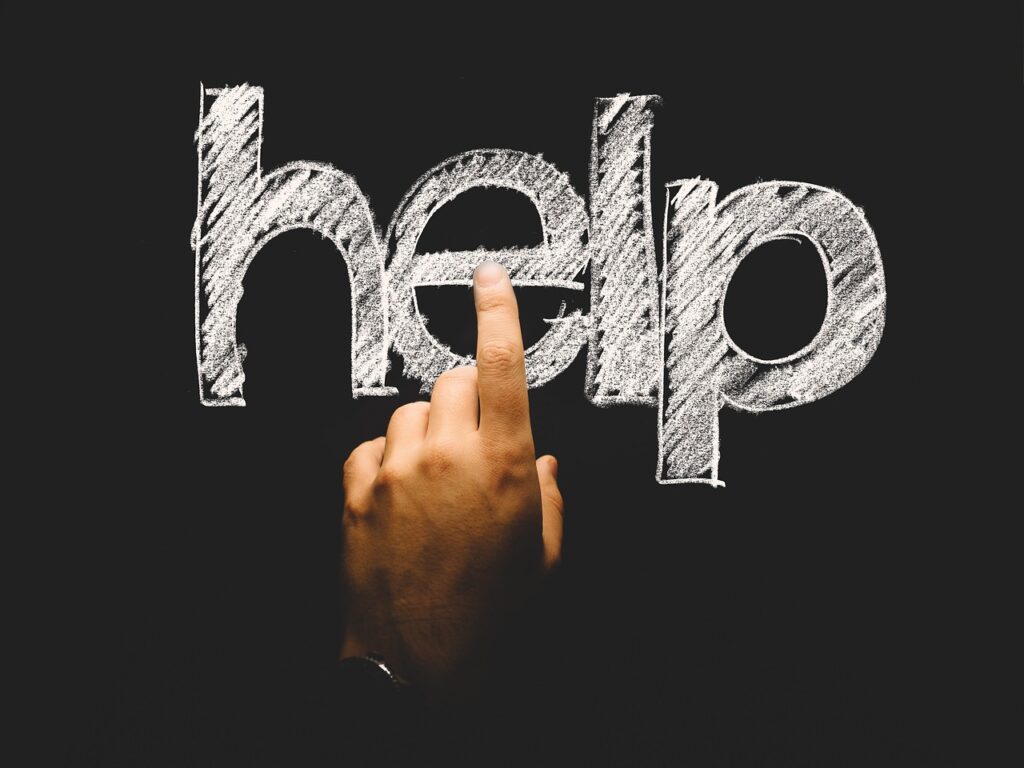Rest is a vital component of working well and working smart; burnout is a vicious cycle that can result in regular stress and you loosing the passion you have for your job. Burnout can have a severe effect on your physical and mental health: increased stress, high blood pressure and weakened immune system. Taking regular breaks during long bouts work is crucial way to prevent burnout and maintain optimal performance levels. . Whether it is just a few minutes away from the computer or an entire (unplugged) weekend, breaking the monotonous grind recharges your physical energy, aids mental clarity, and emotional health. In fact, Research indicates that purposeful breaks of 5–10 minutes’ duration have positive effects on alertness and mood. This article describes how to recharge on all levels of functioning: physical, mental, and emotional, as well as when to consider a reset of our lives catchphrase. Each sections provides examples of real life practical tips for working professionals, along with research citations and experts advice
Physical recharge
Physical recharge is essential maintaining overall well-being –helping the body to repair and heal, boost energy levels, lower stress, and enhance sleep quality. Taking frequent breaks is useful to ameliorate creativity, productivity and overall quality life. Therefore, Give your body the care it needs, and start to prioritize your sleeping and moving your body. Sleep is the huge foundation of energy – as the Sleep Foundation says, “quality sleep fosters attention and concentration” as well as memory, creativity, and judgment. Aim for 7–9 hours of sleep each night. During the day, aim to interrupt long durations of sitting with standing, stretching or walking a little more regularly. Breaking for movement is energizing, even brief movement breaks can cause a shift in energy reserves, as a study reported that ten minutes of exercise would improve attentional and executive function. Any of this micro-exercise (a brisk walk, stretches at a desk, or one set of squats) will release “feel-good” endorphins and provide enhanced blood flow that improve mood and focus.

Eat and stay hydrated wisely. Feed your body with balanced meals (lean proteins, whole grains, and healthy fats) and drink lots of water throughout the day. Avoid heavy, sugary meals that cause you to crash in the afternoon. Setting a timer to drink a glass of water even an hour is helpful, too” whenever possible, take a full- lunch break away from work tasks. Studies indicate that taking time to refuel is good for restoring energy, and even have performance benefits; the more you recharge, the more output you could produce. For instance, the Mayo Clinic inscribes that exercise “enhances your health and sense of wellbeing, providing more energy to you each day,” primarily by increasing endorphins (the brain’s feel-good chemicals). The same goes for regular physical activity (even a short 15-minute walk, or a couple of jumping jacks) that decreases the stress hormone cortisol making for a better night’s sleep.
Adjust your Calendar for mini-breaks: Set alarms or reminders to stand up every hour. Even one to two minutes of stretching or a few flights of stairs can break your fatigue. Movement in nature: If possible, take a short recovery break outdoors. Exposure Green space helps to renew and refresh the mind and body together. (For example, taking a lunch break to walk in the park is great for decreasing stress and optimizing cognitive function.) Recharge with power naps: A power nap (10-20 minutes) can be a quick and clear boost to alertness without the unwanted grogginess. Barely even a 5-minute seated rest or brief guided breathing can help “reset” the body’s stress response. You are accumulating energy by taking care of your body through rest, exercise, healthy eating, and drinking plenty of water. By keeping the mind sharp and preventing burnout, physical self-care allows you to be more productive for longer.
Mental recharge
Allow your brain to take breaks to maintain its sharpness. The experience of ongoing mental stress through meetings, multitasking and frequent email monitoring can results in both fatigue and mistakes. Recent research reveals that deliberate breaks enhance both mental sharpness and creative thinking. Research from Cornell University health professionals reveals that implementing brief intentional breaks between 5 to 60 minutes during work or study periods can boost energy levels and productivity -enhance focus capabilities through cognitive reorganization.

Here are some ideas to refresh your mind:
Mindfulness and breathing: Take some time to do a breathing exercise or a brief guided meditation. Deep and steady breathing for as little as two to five minutes decreases anxiety and helps with focus. If you do not have time to spend on a longer guided session there are several mindfulness apps available (Headspace, Calm, etc.) that provide sessions of a very short duration tailored for busy people.
- Unplug from screens: On a break, unplug from computers and phones if possible. Social media or news can zap your meaningful energy and attention. Give your eyes a break: look out a window, close your eyes for a minute, or do a non-screen-related task (see following bullets.
- Change of scenery: If it is feasible, try to go to a new setting. A brisk walk in nature or thinking about even moving to a various floor in your building could assist turn off work mode and let your mind to wander in a creative way .A research has pointed out that even relatively passive exposure to nature can uplift mood and attention.
- Artistic or pleasurable hobbies: Use breaks to do something fun not work. Listen to a song you like, doodle, and sketch, read one page of a short novel, or do a crossword puzzle. This will engage your mind differently and allow it to rest from any stress related to work. (More importantly, do not scroll mindlessly on social media during breaks- researchers at Cornell have shown that passive phone use does not count as a restorative break).
- On a routine task, take a power down. If something you are working on has stalled for now, try switching over to a task of equal importance or complete a briefly uninteresting task to reorganize your focus. For instances, if you are grapping to come up with comprehensive marketing plan for six month from now. Advisedly take break and spend five minutes cleansing up your desk or revise simple list of what needs to be done tomorrow. Shifting to another task like this can often refresh your approach to a problem. When you use short “mental recesses” throughout the day, you come back to your work with a renewed perspective. As One expert recommends allowing a little daydreaming and purposeful deep breathing during your breaks. These refreshers will allow to come up with creative thinking and to prevent burn out.
Emotional recharge
Do not overlook about your emotional needs. Experiencing chronic stress, chronic overwhelm or chronic loneliness at work is a sign to get back to what is important. Taking care of your emotional well-being is about managing your stressors and strengthening your support system. Here are some recommended tips from research:
Connect with other: In order to safeguard one’s emotional wellbeing it`s necessary and beneficial to surround oneself with caring and supportive friends and family. Social connection plays big role in maintaining physical mental and emotional wellbeing since human are social creatures. Recent research highlights that strong social bonds make us contented and healthier. Harvard academics suggested that people with good social interactions tends to live longer and have lesser rates of depression and anxiety. Conversely, loneliness linked to an increased risk of mental disease. Never undervalue how a quick chat at teatime, a phone call, or a virtual catch-up can improve your attitude for days.

Express gratitude: There are demonstrable benefits to maintaining a daily gratitude journal (recording 2–3 things for which you are grateful). A Research conducted and compiled by Purdue University suggests that practicing gratitude can decrease stress and enhance overall mental health. Consider starting or ending your workday by documenting that success, or a kind interaction, this can help move your direction from stressors to what went well.

Set boundaries: Draw a line between work and personal time. For instance, create a rule of “never logging on after 5 PM or on weekends.” A work-life balance expert said taking regular breaks (like a lunch hour away from work) “sets a hard boundary that tells you this is your work-life balance.” Saying no to extra tasks when you already have a full plate is hard, but it is also important: it protects your time and energy so you do not become emotionally or physically exhausted.

Constructively manage emotions: If you are feeling, overwhelmed, try to talk it out or write, it down it helps sometimes. Journaling is also a creative way to help you process those feelings; it`s common to have that sense of overwhelm then journal for even five minutes about your frustrations and can reduce your stress and improved your outlook subsequently. Similarly, laughter and fun efficiently re-set emotions. Try watching some sort of short humorous video, share a joke with a co-worker, or quickly skim some sort of light-hearted content or search item (keep it to something brief!).

Seek professional assistance: If stress or feelings of negativity persist, consider counseling or coaching. A therapist or mentor can help you process what is happening, giving your perspective and ultimately, relief. Many employers now provide mental health days or employee assistance programs – using these is important self-care. Taking care of your mental health allows you to develop the resilience to deal with the stressors that will come from the demands of work. You matter – so take care of yourself! Caring for your mental (or emotional) health is not selfish; in fact, it should be mandatory. An expert stated, “Schedule ‘time for yourself every day – even if it’s just to enjoy a cup of coffee alone, take a walk after work, or read a few chapters of a book before you go to bed – that shows you treat yourself as a priority’.” Daily habits that are small (gratitude, time with friends, “no” to things that are not best or benefit for you) accumulate into huge emotional payoffs.
Life reset
Sometimes a longer reset is required to unwind and recuperate in this first paced world .consider making occasional changes to balance your job and life. Taking daily breaks can be helpful such as organizing a trip or vocation this could be also learning hoppy and new skills to inspire yourself and moderate the stress. Experts and research highlight the power of intentional resets:
Scheduled time off: Plan vacations or mini-sabbaticals (or even a long weekend without work) during which you can breathe and truly unwind. Studies of professionals who took sabbaticals found that, in their later reflections of the experience, there had been “significant, positive changes” in both their work lives and personal lives after the sabbatical .If you can’t take a formal sabbatical, consider squeezing in a day off here and there with no meetings and no emails. Use that day for something re-energizing; a hike in nature, a good old-fashioned road trip, or just time with family. These moments away inspire creativity and motivation.
Digital Detox: Make a regular habit of unplugging. Permanent connectivity fragments attention and heightens stress. Try creating daily intervals of tech-free time (no phone/computers during dinner, or limit time on devices to one “screen-free” evening each week). Health experts at Brown University have found that being away from your devices will lower your stress and increase focus and sleep. Even a short digital detox will allow you to reconnect to real life and see what matters.

Reflections and re-evaluation: Take a quiet moment to reflect on your goals and values. Journaling or a “life audit” can help you declutter all the energy drains and identify what you like. Maybe a side project that you are passionate about turns into a career, or maybe your work environment needs to change. Setting new professional goals or simplifying your schedule (maybe delegating tasks or you are ready to say no to new commitments) can be a micro-reset.
Invest in passions: Engage in hobbies or learning new skills. As one advisor notes, non-work activities act as “energy amplifiers” that give important mental breaks. Whether its music, painting, or a sports league, hobbies provide fulfillment that work alone often cannot. Making time weekly for these interests keeps life balanced in the end.
Reboot routines: Shake up your daily routine in a small way. Even simple changes—switching your morning ritual, trying a new route to work, or redecorating your workspace—can offer fresh perspective. For example, one source suggests that switching the wallpaper on your computer or adding a plant can reset your mental state during a tough day these minor shifts can break monotony and spark new energy.
Final thought
Think of a change of life as a heavy pause on working in your life. Life resets are opportunities to align back your goals and purpose in life; the key to life resets is alignment and the goal is not just to take a break from work and travel or to go to leisure, but to get back to work recharged and reinvigorated and to thrive. As one wellness, coach tells it: success is not about constant hustling and striving – it is about finding a rhythm that energizes your work, but has effectiveness in your satisfaction and fulfillment in life. Taking breaks and resets is not a sign of weakness or incapacity to be productive but is a proven tool used by the world’s best performers; rather it is a form of performance enhancer. By replenishing physically, mentally and emotionally – and sometimes taking a step back in order to reset yourself at higher level -, you are able to sustain energy, creativity and satisfaction in the end. Even your health and well-being require as much planning and attention as any project deadline.

